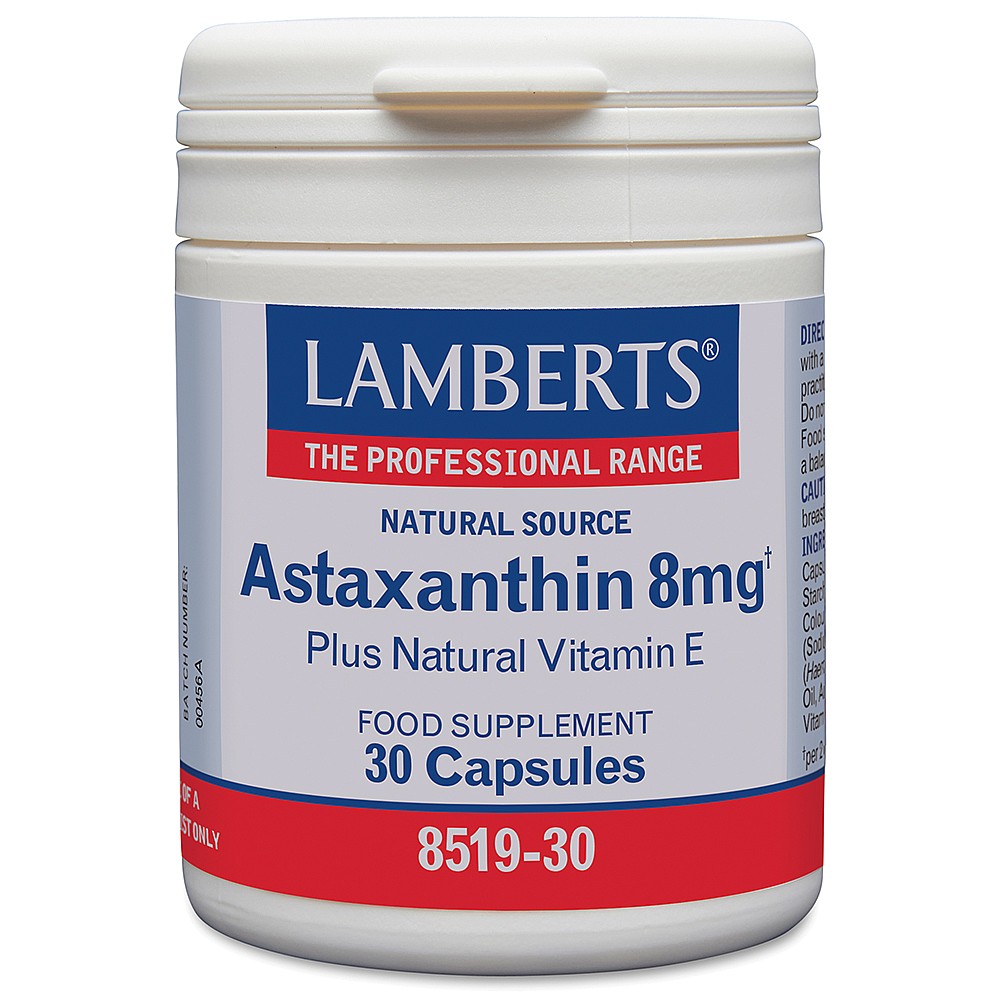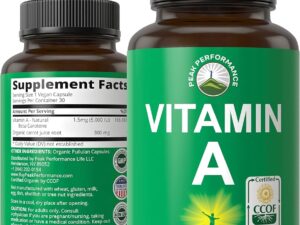Description
Astaxanthin: The Powerful Red Pigment You Should Know About
In the vast world of antioxidants, astaxanthin stands out. This naturally occurring carotenoid pigment is responsible for the vibrant red hues seen in salmon, shrimp, krill, and certain algae. Beyond its role as a natural food coloring, astaxanthin is gaining widespread attention for its impressive health benefits, backed by a growing body of scientific research.
What is Astaxanthin?
Astaxanthin is a member of the carotenoid family, a group of naturally occurring pigments synthesized by plants, algae, and bacteria. Unlike some other carotenoids that can be converted into vitamin A (like beta-carotene), astaxanthin remains an antioxidant, meaning it primarily works by neutralizing harmful free radicals in the body.
The primary source of astaxanthin in the food chain is the microalgae Haematococcus pluvialis. When these algae are stressed (by sunlight, starvation, or high salinity), they produce astaxanthin as a protective mechanism. This astaxanthin is then consumed by smaller creatures, which are in turn eaten by larger ones, eventually making its way up the food chain.
Why is Astaxanthin So Special?
Astaxanthin’s unique molecular structure allows it to offer several advantages over other antioxidants:
- Powerful Antioxidant Activity: Astaxanthin boasts exceptional antioxidant power, often touted as significantly stronger than vitamin E, beta-carotene, and even CoQ10. This potency stems from its ability to span across the entire cell membrane, providing protection both inside and outside the cell.
- Broad-Spectrum Benefits: Unlike some antioxidants that only target specific free radicals, astaxanthin can neutralize a wider range of harmful molecules. This makes it a versatile protector against oxidative stress.
- No Pro-Oxidant Effect: Some antioxidants can become pro-oxidants under certain conditions, potentially causing more harm than good. Astaxanthin does not exhibit this behavior, making it a safer option for long-term use.
- Crosses the Blood-Brain Barrier: Astaxanthin can cross the blood-brain barrier, allowing it to deliver its protective benefits directly to the brain.
Potential Health Benefits of Astaxanthin
The research surrounding astaxanthin is constantly evolving, and while more studies are needed, promising findings suggest a wide range of potential health benefits:
- Skin Health: Astaxanthin is believed to protect against UV damage, reduce wrinkles, improve skin elasticity, and promote hydration. Studies have shown impressive results in reducing the signs of aging and improving overall skin appearance.
- Eye Health: Its ability to cross the blood-retinal barrier allows astaxanthin to protect the eyes from age-related macular degeneration (AMD), cataracts, and other vision problems.
- Cardiovascular Health: Astaxanthin may help improve cholesterol levels, reduce inflammation, and protect against the oxidation of LDL cholesterol, all of which are beneficial for heart health.
- Brain Health: By crossing the blood-brain barrier, astaxanthin can protect brain cells from oxidative stress and inflammation, potentially improving cognitive function and reducing the risk of neurodegenerative diseases.
- Exercise Performance: Astaxanthin may enhance athletic performance by improving endurance, reducing muscle damage, and promoting faster recovery after exercise.
- Immune System Support: Studies suggest that astaxanthin may help strengthen the immune system by increasing the activity of immune cells.
How to Get Astaxanthin
You can obtain astaxanthin through diet or supplementation:
- Dietary Sources: Salmon, shrimp, krill, and red algae are natural sources of astaxanthin. However, the concentration of astaxanthin in these foods can vary significantly.
- Supplements: Astaxanthin supplements are available as capsules or softgels. They are typically derived from Haematococcus pluvialis algae.
Dosage and Safety
The recommended dosage of astaxanthin supplements varies depending on the specific condition being addressed, but generally ranges from 4 to 12 mg per day. Astaxanthin is generally considered safe, with few reported side effects. However, it’s always best to consult with your doctor or a qualified healthcare professional before starting any new supplement, especially if you have any underlying health conditions or are taking medications.
The Bottom Line
Astaxanthin is a powerful antioxidant with a unique molecular structure that allows it to provide broad-spectrum protection against oxidative stress. While more research is needed to fully understand its potential, the evidence suggests a wide range of potential health benefits, from improving skin health to boosting athletic performance. By incorporating astaxanthin into your diet or supplement regimen, you can potentially harness the power of this vibrant red pigment for improved health and well-being.
















Reviews
There are no reviews yet.